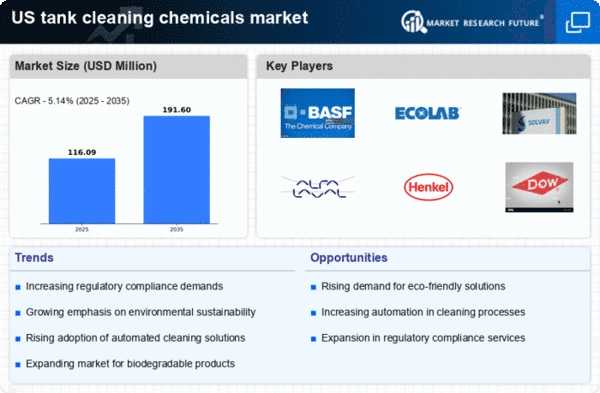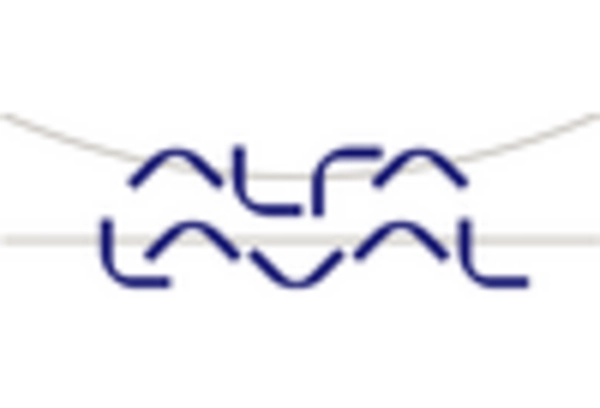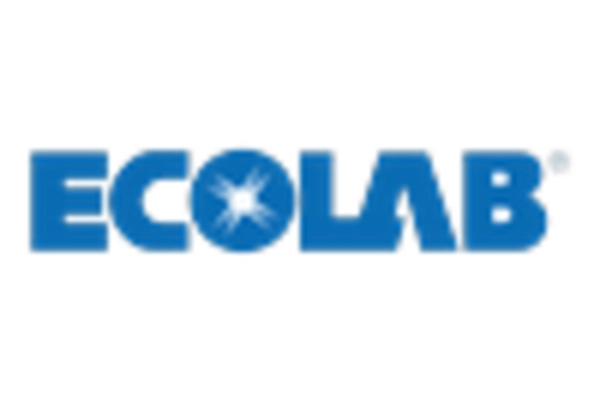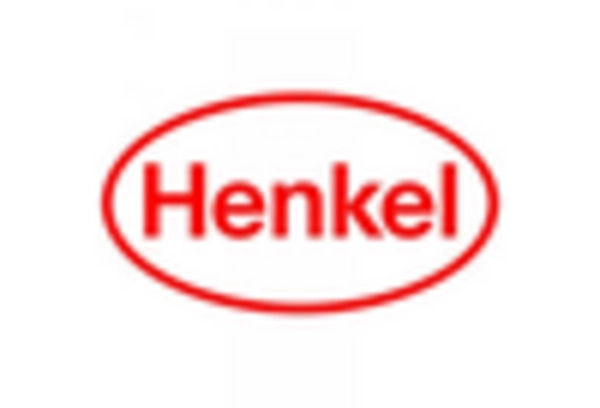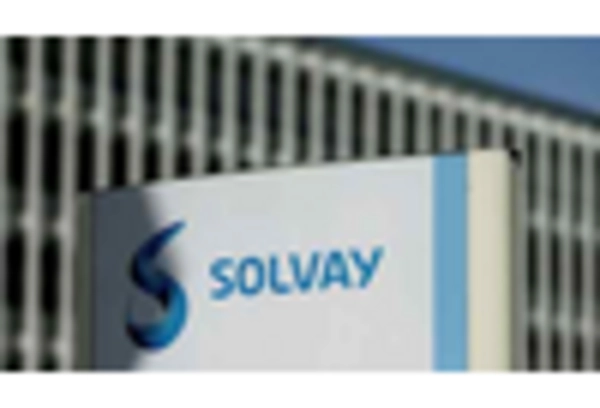The tank cleaning-chemicals market is characterized by a competitive landscape that is increasingly shaped by innovation, sustainability, and strategic partnerships. Key players such as Ecolab Inc (US), BASF SE (DE), and Dow Inc (US) are actively pursuing strategies that emphasize technological advancements and eco-friendly solutions. Ecolab Inc (US) has positioned itself as a leader in sustainability, focusing on developing cleaning solutions that minimize environmental impact while enhancing operational efficiency. BASF SE (DE) is leveraging its extensive research capabilities to innovate new formulations that meet stringent regulatory standards, thereby enhancing its market presence. Dow Inc (US) is also investing in digital transformation initiatives to optimize its supply chain and improve customer engagement, which collectively influences the competitive dynamics of the market.The business tactics employed by these companies reflect a trend towards localizing manufacturing and optimizing supply chains to enhance responsiveness to market demands. The market structure appears moderately fragmented, with several players vying for market share, yet the collective influence of major companies like Ecolab Inc (US) and BASF SE (DE) suggests a trend towards consolidation. This competitive environment is further shaped by the need for companies to adapt to evolving customer preferences and regulatory requirements, which necessitates a focus on innovation and operational efficiency.
In October Ecolab Inc (US) announced a partnership with a leading technology firm to develop AI-driven cleaning solutions aimed at improving efficiency in industrial applications. This strategic move is significant as it not only enhances Ecolab's product offerings but also positions the company at the forefront of digital transformation within the tank cleaning-chemicals market. The integration of AI technology is likely to streamline operations and reduce costs, thereby providing a competitive edge.
In September BASF SE (DE) launched a new line of biodegradable cleaning agents specifically designed for the tank cleaning sector. This initiative underscores BASF's commitment to sustainability and reflects a growing trend among consumers and businesses to prioritize environmentally friendly products. The introduction of these agents may attract a broader customer base, particularly those in industries facing increasing pressure to adopt sustainable practices.
In August Dow Inc (US) expanded its production capacity for tank cleaning chemicals in response to rising demand. This expansion is indicative of Dow's proactive approach to market dynamics and its commitment to meeting customer needs. By increasing production capabilities, Dow is likely to enhance its market share and strengthen its position against competitors, particularly in a landscape where supply chain reliability is becoming increasingly critical.
As of November the competitive trends within the tank cleaning-chemicals market are heavily influenced by digitalization, sustainability, and the integration of advanced technologies. Strategic alliances are becoming more prevalent, as companies recognize the value of collaboration in driving innovation and enhancing market reach. Looking ahead, it appears that competitive differentiation will increasingly hinge on factors such as technological innovation, sustainability initiatives, and the reliability of supply chains, rather than solely on price. This shift suggests a transformative phase in the market, where companies that prioritize these elements may emerge as leaders.


